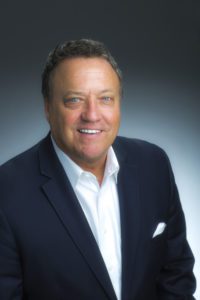Dear Moms,
As a parent, I would do anything to protect my children. When they were tiny, I childproofed the house. When they set off to the park on a skateboard or bike, a helmet was not optional. When I taught them to drive, wearing a seatbelt was the rule of the road. 
When I learned that the human papillomavirus (HPV) will infect nearly every person in their lifetime and will cause cancer in many, I was concerned. When I learned I could protect my children from both the virus and six types of cancer with a vaccine, my decision to take action was crystal clear.
I vaccinated my children from HPV, a common virus similar to the common cold, in terms of the number of people infected. According to the American Cancer Society, a leader in the fight against cancer, 4 out of 5 Americans will get HPV during their lifetime. That means nearly every Texan will become infected with HPV at some point in their lifetime.
This year alone, approximately 1,105 women in Texas will be diagnosed with cervical cancer and an estimated 1,215 men and women will be diagnosed with throat cancer – all caused by HPV. I live in Texas. These numbers frighten me, particularly, because they represent people who could be my neighbors, colleagues, friends, or family members.
You can learn more about how the HPV vaccine safely protects children against cancer by visiting cancer.org/hpvtexas. In the meantime, here are three facts that drove it home for me:
- It’s cancer prevention
- It’s safe and effective
- It’s recommended for boys AND girls before they turn 13
Not that long ago, people lived in fear of deadly infections like smallpox, polio, and hepatitis. Thanks to vaccines, those fears have been eliminated and millions of lives were saved. Today, it’s the HPV virus and cancer. Imagine if all 11- to 12-year-olds in the United States were vaccinated against HPV. About 90 percent of HPV cancers could be prevented.
The HPV vaccine delivers on a dream many have held for decades: a cancer prevention vaccine.
As parents, being aware and informed is critical. Be a partner with your pediatrician when it comes to the HPV vaccine. When your 11-year-old goes in for his/her regularly scheduled vaccines, make sure the HPV vaccine is among them. As parents, it’s up to us to protect our children from HPV cancers.
A protective parent just like you,
Jeff Fehlis,
Father of two
Executive Vice President
American Cancer Society














